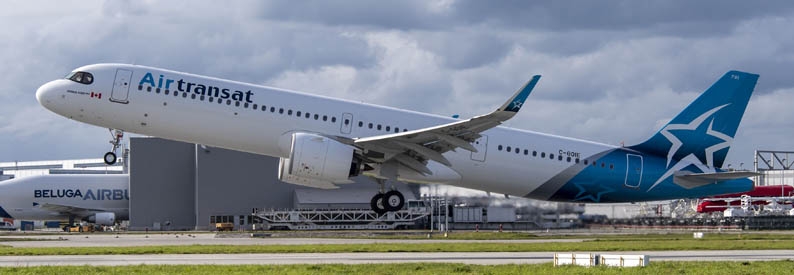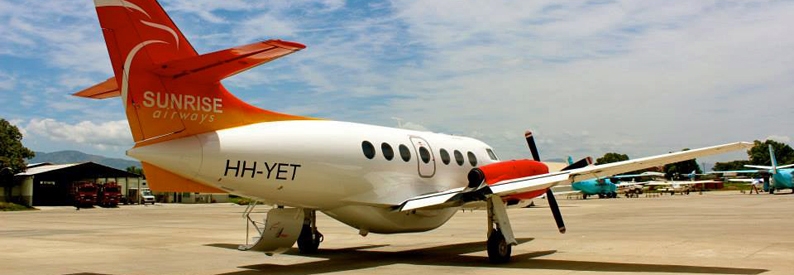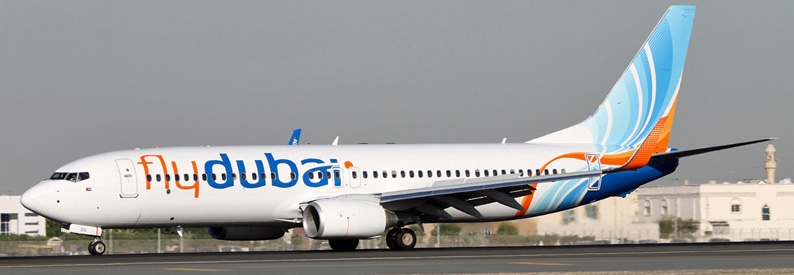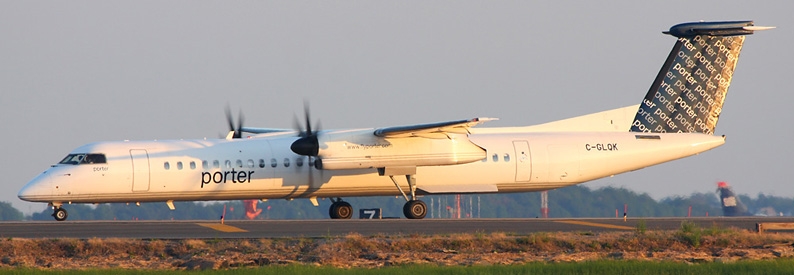Air Transat (TS, Montréal Trudeau) urgently needs to secure CAD500 million Canadian dollars (USD401 million) in long-term financing to ensure its operations' continuity should its acquisition by Air Canada (AC, Montréal Trudeau) not go ahead, parent company Transat A.T. Inc. said in its first-quarter 2021 financial report.
Even though the Canadian government, shareholders, and the Superior Court of Québec have approved the Air Canada deal, a February 15 “outside date” deadline for a decision by the European Commission (EC) passed after it requested additional information from the parties. The EC is now expected to make a decision sometime in the first half of 2021. Air Canada has informed Transat it will not agree to an extension of the outside date. Meantime, a revised "Arrangement Agreement" between Air Canada and Transat remains in force, but each party may terminate it at any time following the stipulated terms.
“As of January 31, 2021, there exists material uncertainty that may cast significant doubt on the corporation's ability to continue as a going concern. Should the transaction with Air Canada not be completed, the corporation will have to put in place overall financing totaling at least CAD500 million in 2021 to ensure continuity of operations,” the company said in a statement.
On February 17, 2021, Transat amended its CAD250 million (USD200 million) subordinated short-term credit facility for operating purposes with Export Development Canada and the National Bank of Canada as the main arranger. This credit facility may be drawn down in tranches at any moment before May 31, 2021, subject to certain pre-requisites and borrowing requirements. These conditions include certain requirements relating to unrestricted cash before and after a drawdown on the facility. The subordinated short-term credit facility will mature at the earliest date between June 30, 2021, and the closing of the arrangement with Air Canada.
“Management is actively seeking to secure financing that would be required before the maturity of its subordinated short-term credit facility and is continuing discussions with potential lenders, including federal and provincial government authorities. Such financing could be obtained through an application for the Large Employer Emergency Financing Facility (LEEFF) or through any government assistance programme, including sector-specific assistance that could include loans and possibly other types of support announced by the Minister of Transport of Canada,” the company said. If Transat were to use the LEEFF programme, it would be the second major Canadian airline to do so since the start of the pandemic, after Sunwing Airlines (WG, Toronto Pearson) announced in February that it was taking a LEEFF loan.
Only if the arrangement agreement with Air Canada fell through would Transat be able to engage with Gestion MTRHP inc, an investment firm owned by Pierre Karl Péladeau, which on December 22, 2020, made a non-binding offer to acquire the shares of Transat, the company said. Meanwhile, the "Arrangement Agreement" provisions with Air Canada did not allow Transat to discuss alternative offers with other parties.
Transat announced revenues of CAD41.9 million (USD33.6 million) during the 1Q21 ending 31 January 2021, a decrease of CAD650.9 million (USD522.5 million) or 93.9% compared with 2020, due to the impact of COVID-19 on travel demand. Its operating loss of CAD98 million (USD522.5 million) compared with an operating income of CAD25.1 million (USD20.1 million) in 2020, a deterioration of CAD73 million (USD58.6 million). Despite cost reduction measures implemented to deal with the pandemic, fixed costs meant the fall in revenues was more pronounced than the decrease in operating expenses. Net loss attributable to shareholders amounted to CAD60.5 million (USD48.5 million) or CAD1.60 (USD1.28) per share compared with CAD33.8 million (USD27.1 million) or CAD0.90 (USD0.70) per share for the corresponding quarter of last year. Excluding non-operating items, Transat reported an adjusted net loss of CAD109 million (USD87.5 million) or CAD2.89 per share (USD2.32) for the first quarter of 2021, compared with CAD20.3 million (USD16.2 million) or CAD0.54 per share (USD0.43) in 2020.
The company’s financial position on January 31 showed cash and cash equivalents totalling CAD302.8 million (USD243 million) compared with CAD682.2 million (USD547.4 million) on January 31, 2020, as a result of the significant decrease in profitability, partially offset by a CAD50 million drawdown on the revolving credit facility.
Off-balance-sheet agreements, excluding contracts with service providers, stood at CAD752.8 million (USD604.3 million) as of January 31. This amount was mainly composed of commitments to take delivery of ten A321-200Ns undelivered as of that date.
President and Chief Executive Officer Jean-Marc Eustache said: "These results are for a quarter where it was once again impossible to operate our business in a sustainable manner. With the arrival of vaccines, we're now preparing ourselves for a resumption of operations in the summer and particularly next winter. Our priority for the current quarter, while continuing to work on obtaining EU approval, is to secure financing, finalise our recovery plan, and review all our options in the event the transaction with Air Canada will not take place".
Eustache said the corporation currently expected to resume operations around mid-June during the high summer season. It suspended all flights on January 29, 2021, after the government banned travel to Mexico and the Caribbean, and introduced new quarantine measures and COVID-19 testing requirements to stop the spread of new COVID-19 variants.
Transat did not expect traffic volumes to recover to pre-pandemic levels before 2023. Meanwhile, it had implemented a series of operational, commercial, and financial measures, including cost reduction, to preserve its cash. It was monitoring the situation daily to adjust these measures accordingly.
The Canadian leisure group took the following actions during 1Q21 to preserve cash:
- Two A330s and one B737-800 were returned to lessors early;
- Negotiations with suppliers, including aircraft lessors, were ongoing to benefit from cost reductions and changes in payment terms, and Transat continued to implement measures to reduce expenses and investments; The company continued to draw on the Canada Emergency Wage Subsidy (CEWS) scheme for its Canadian workforce, which enabled it to finance part of its staff's salaries still at work and propose employees temporarily laid off to receive a part of their salary equivalent.
Transat said it would not provide an outlook for the second quarter or summer 2021 in light of the situation's unpredictability.






